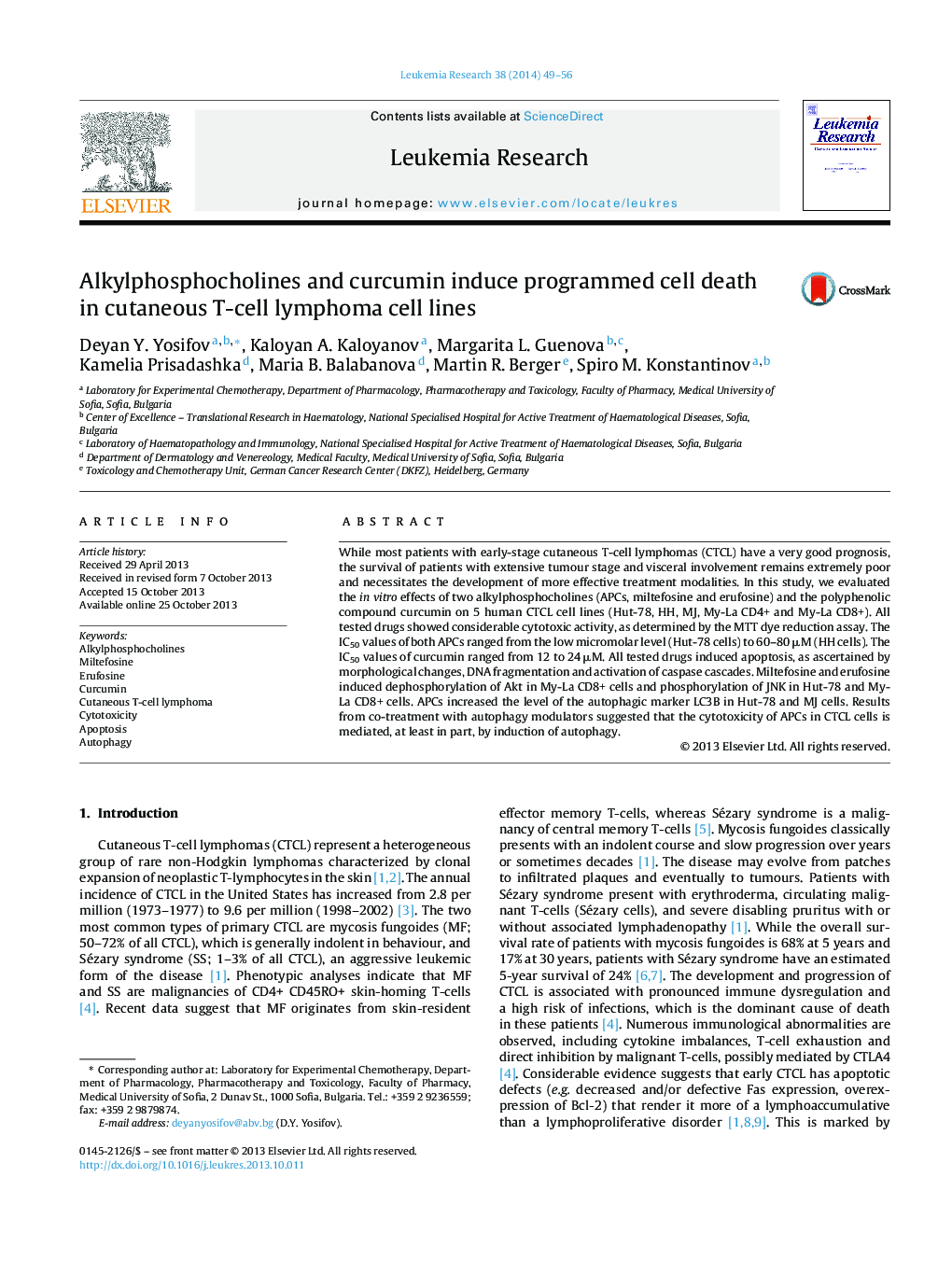| Article ID | Journal | Published Year | Pages | File Type |
|---|---|---|---|---|
| 10908758 | Leukemia Research | 2014 | 8 Pages |
Abstract
While most patients with early-stage cutaneous T-cell lymphomas (CTCL) have a very good prognosis, the survival of patients with extensive tumour stage and visceral involvement remains extremely poor and necessitates the development of more effective treatment modalities. In this study, we evaluated the in vitro effects of two alkylphosphocholines (APCs, miltefosine and erufosine) and the polyphenolic compound curcumin on 5 human CTCL cell lines (Hut-78, HH, MJ, My-La CD4+ and My-La CD8+). All tested drugs showed considerable cytotoxic activity, as determined by the MTT dye reduction assay. The IC50 values of both APCs ranged from the low micromolar level (Hut-78 cells) to 60-80 μM (HH cells). The IC50 values of curcumin ranged from 12 to 24 μM. All tested drugs induced apoptosis, as ascertained by morphological changes, DNA fragmentation and activation of caspase cascades. Miltefosine and erufosine induced dephosphorylation of Akt in My-La CD8+ cells and phosphorylation of JNK in Hut-78 and My-La CD8+ cells. APCs increased the level of the autophagic marker LC3B in Hut-78 and MJ cells. Results from co-treatment with autophagy modulators suggested that the cytotoxicity of APCs in CTCL cells is mediated, at least in part, by induction of autophagy.
Keywords
Related Topics
Life Sciences
Biochemistry, Genetics and Molecular Biology
Cancer Research
Authors
Deyan Y. Yosifov, Kaloyan A. Kaloyanov, Margarita L. Guenova, Kamelia Prisadashka, Maria B. Balabanova, Martin R. Berger, Spiro M. Konstantinov,
